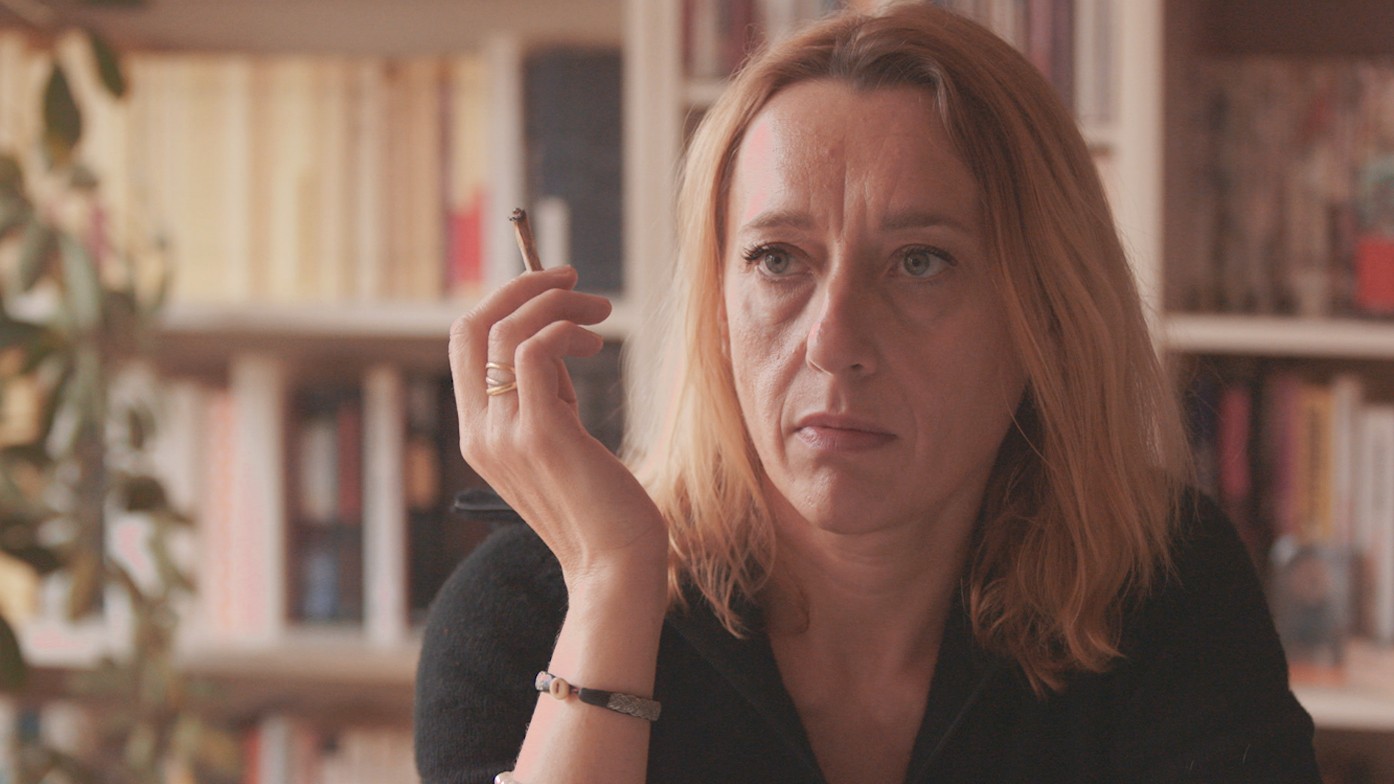Photo and book cover courtesy of Carmen Maria Machado
Carmen Maria Machado can imagine the end of the world before she can imagine the end of the patriarchy. She says so over the phone from Philadelphia, mirroring a famous quote in which someone—for it is often misattributed—said they could imagine the end of the world before they could imagine the end of capitalism. Her debut collection of stories, Her Body & Other Parties, is a group of modern fables that merge horror, fantasy, science fiction, magic realism, and fairy tale and explore the violence visited on women’s bodies. It has received huge attention and accolades in recent months, including a nomination for the National Book Award.These stories feel ridiculously current and disturbingly real, and that might have added relevance to them, but, when I point it out, she reminds me that she sold it two years ago, when Barack Obama was president—and wrote it over the five years prior to that. “My book is a reflection of how bad it’s always been,” she says. “Some people are like ‘man, things are bad for women right now!’ But women’s lives have been garbage for all of human history. I am not optimistic about it, and I think my book reflects my emotions about that.”The eight stories in the book touch on topics including sexual violence, fat bodies, queer history, erotica, and domestic abuse. They form a profound, sensual, unsettling collection about what it means to be a woman and inhabit a body in this world. Machado reads like a millennial blend of Angela Carter, Margaret Atwood, and Nell Zink. She does find specific comparisons with other authors useful (and “flattering”), but doesn’t care for genre discussions: “People spend too much time worrying about the categories and not enough time worrying about the art itself. And I think that’s very boring.”
Watch: Virginie Despentes on Killing Rapists
Some of the praise for the book is too delicious not to mention. Roxane Gay said of it that it “vibrates with originality, queerness, sensuality, and the strange.” Parul Sehgal in the New York Times said of it: “It’s a wild thing, this book, covered in sequins and scales, blazing.” The collection does feel like a pulsating, live creature. Machado recalls talking to an interviewer recently about the ghost stories she so liked hearing as a girl scout around the campfire, some of which she has rewritten here, and the interviewer told her “you like books that change your temperature”—what an apt description for what she herself does so deftly.In “Especially Heinous,” the novella at the center of the book, she re-writes 12 full seasons of Law & Order: Special Victims Unit. “I was interested in how narratives of sexual violence are shaped by us, how we shape them, and how they shape us,” Machado says. The show, which focuses on victims of sexual crimes (the line “especially heinous” is in the actual opening credits), is the longest running Law & Order franchise, on the air for 19 years and counting, and it arguably has the most devoted fan base.“I think that Law & Order: SVU is our worst, scariest contemporary fairy tale,” she says. “It’s a show that returns to a formula, every week starts from the beginning, and you’re led again into the horror of being a woman in this world. So I wanted to address the way it made me feel, which is complicated, because it does give me a lot of pleasure as a show. There’s a lot of vicarious pleasure in getting to see certain people punished, and also this weird pleasure of knowing the rhythm of the show, which is why we find shows with formulas very soothing.”But there’s also its exploitative side. “I feel like we think of dead women as these sort of sexy accessories. We love images of dead women––even if you look at advertising, we really love images of women being wasted away, disappeared, dissolved, made smaller… Culturally, we love it! There’s something about that that is very interesting and very upsetting.”The title of another story, “The Husband Stitch,” is a real-life expression referring to men asking doctors to “add an extra stitch” during the procedure in which the woman’s perineum is stitched together after it has been cut to facilitate childbirth. (The story is a terrifying fairy tale of male entitlement, and a retelling of an urban legend about a girl with a green ribbon around her neck.) “Inventory” narrates a pandemic through a woman's account of her sexual partners, and in “Real Women Have Bodies,” women are literally disappearing and fading away.
Advertisement
Watch: Virginie Despentes on Killing Rapists

Some of the praise for the book is too delicious not to mention. Roxane Gay said of it that it “vibrates with originality, queerness, sensuality, and the strange.” Parul Sehgal in the New York Times said of it: “It’s a wild thing, this book, covered in sequins and scales, blazing.” The collection does feel like a pulsating, live creature. Machado recalls talking to an interviewer recently about the ghost stories she so liked hearing as a girl scout around the campfire, some of which she has rewritten here, and the interviewer told her “you like books that change your temperature”—what an apt description for what she herself does so deftly.
Advertisement
Advertisement
In “The Resident,” Machado asks the reader: “Have you encountered any others who have truly met themselves?” This book, layered and brilliant, helps us do just that: “Many people live and die without ever confronting themselves in the darkness,” it reads. “Pray that one day, you will spin around at the water’s edge, lean over, and be able to count yourself among the lucky.”Machado gets many emails from readers thanking her for writing the story about domestic abuse in a lesbian relationship, titled “Mothers.” She is currently writing a memoir about that very topic, based around her own experiences. “I was like, ‘I would like to read some interesting creative nonfiction about this,’ and I could find nothing. I think this is partially because it’s just not a thing people write about. There’s a lot of pressure in the queer community not to air your dirty laundry.” It is a gap in need of filling. “I always tell my writing students that you have to write the book you want to see in the world.”Her Body & Other Parties is out now in the US and UK.
